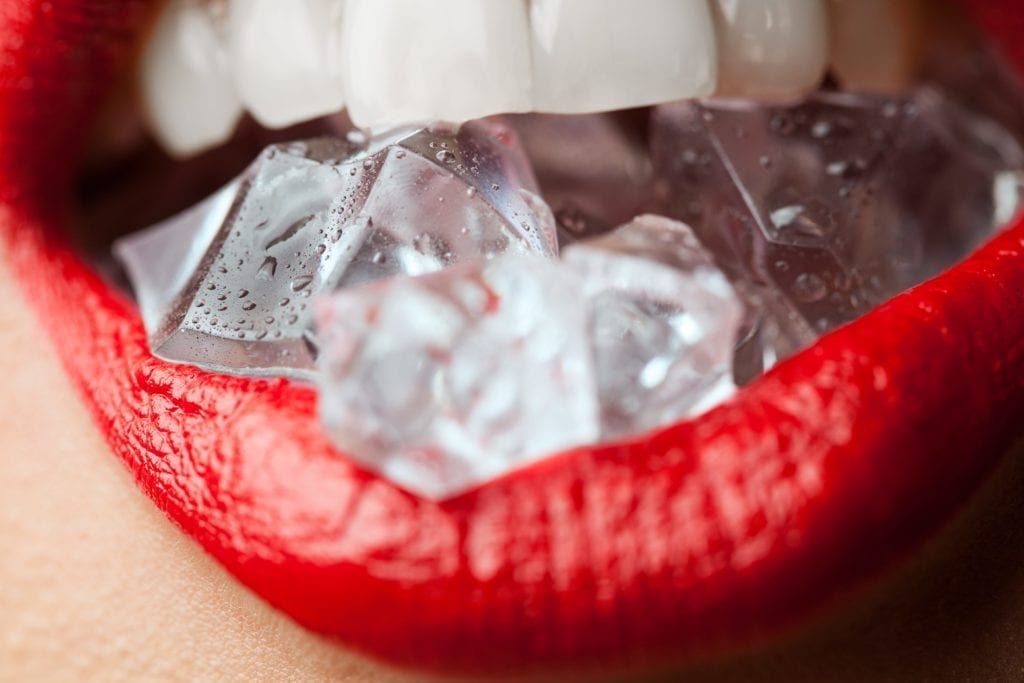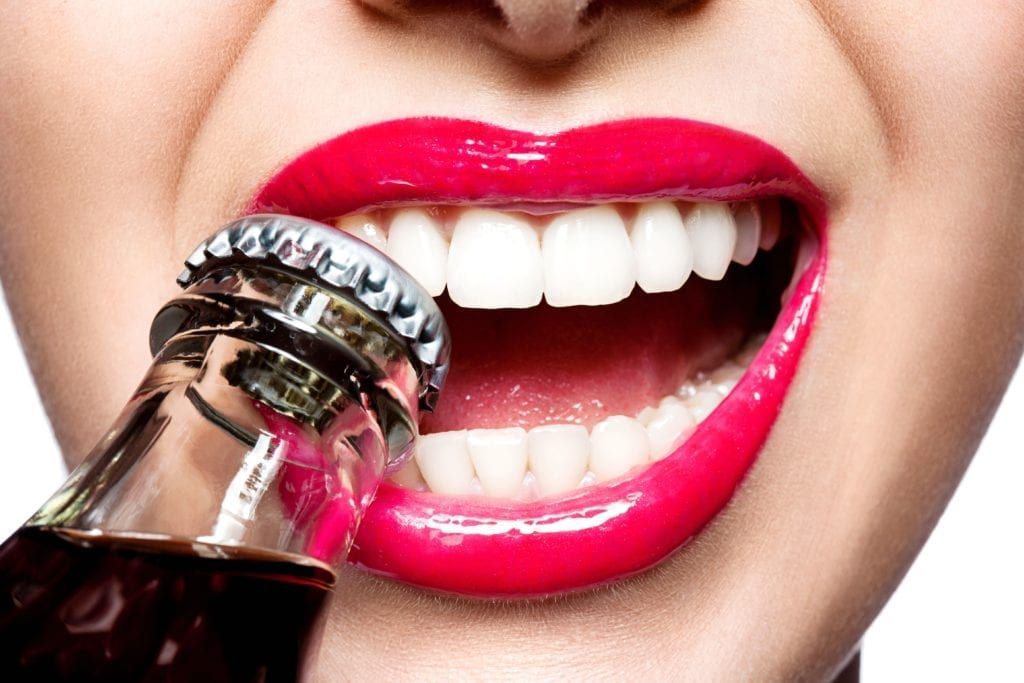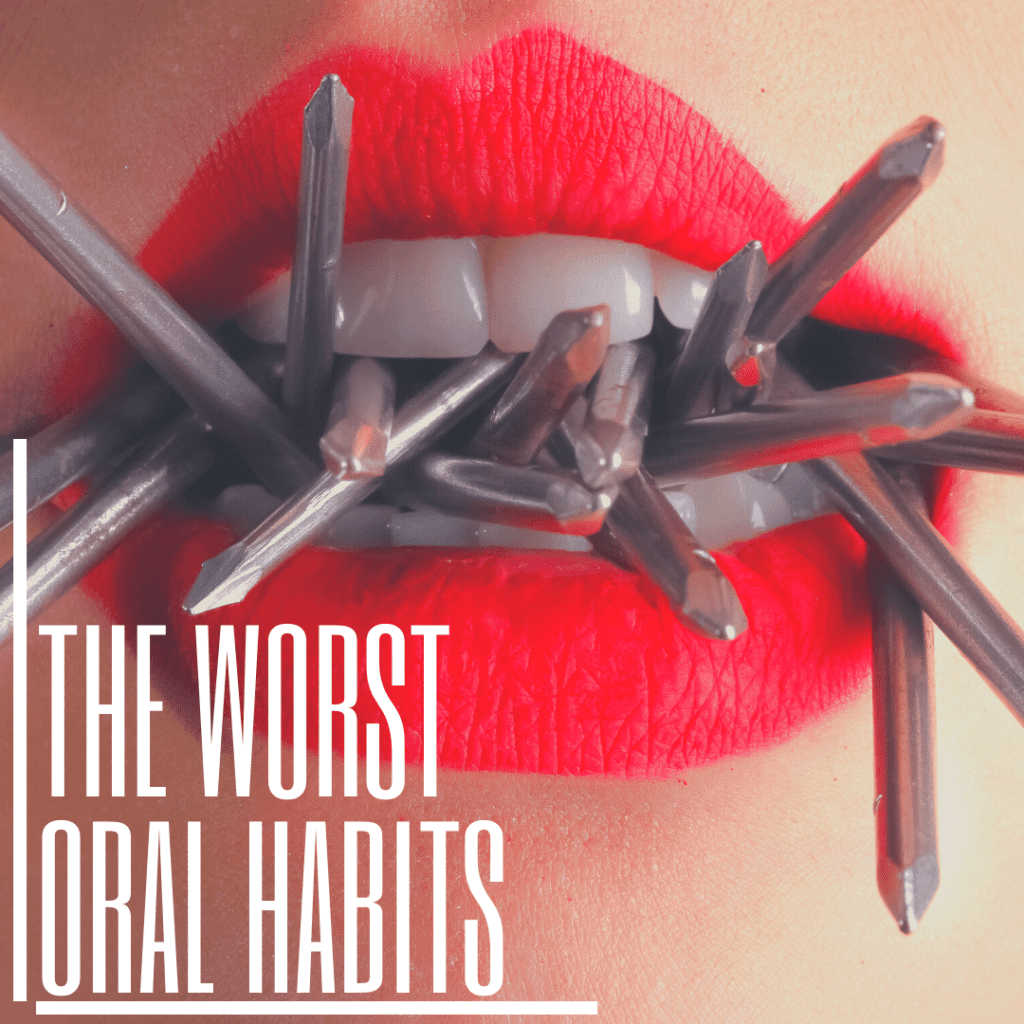We all have habits, or behaviors that are routinely performed whether consciously or unconsciously. When it comes to your oral health, certain habits like brushing twice a day and flossing daily can have a positive effect. Conversely, there are also certain habits that can be detrimental to your oral health. While there are many habits that can have a negative effect on your oral health, some of these habits are more harmful than others. Here is a list of the worst oral habits for your oral health:
Brushing Too Hard
Some people apply extra pressure when they brush in order to “scrub” off plaque, tartar, and stains from the surface of their teeth. Unfortunately, this doesn’t make their teeth any cleaner, but it can potentially damage the enamel and/or cause the gums to recede. Since plaque is very soft, it can easily and effectively be removed with a soft toothbrush. Tartar, on the other hand, can only be removed by your dentist with special tools. Finally, most stains require teeth whitening treatments. This ultimately means that it is better for your teeth to brush them softly, since brushing too hard can only damage your enamel. If your toothbrush has bristles that fray outwards and/or you find yourself replacing it before the three month mark, then you are probably brushing too hard. Basically, you want to apply light pressure with a soft-bristled manual or electric toothbrush. Certain electric toothbrushes even have sensors to tell you when you’re brushing too hard.

Chewing on Ice
Chewing on ice can be refreshing on a hot day, however it can also cause your teeth to chip or crack. This is because both tooth enamel and ice have a crystalline structure, meaning that one of them will have to break when they are forcefully pushed together. Although the ice will usually break, there are cases where tooth enamel or a dental restoration can break. To prevent yourself from chewing on ice, try using a straw when drinking.
Grinding and Clenching
Oftentimes, this is an unconscious habit that occurs while you are sleeping. For this reason, it can be hard to determine if you grind or clench your teeth. Nevertheless, frequently grinding or clenching your teeth can cause premature enamel wear, chipped or fractured teeth, and temporomandibular joint disorder (TMD). If your dentist observes signs of bruxism during a regular dental exam, they will likely recommend a night guard for you to wear while you sleep in order to protect your teeth and jaw. Additionally, they may recommend stress management techniques since this behavior is often brought on by stress.
Nail Biting
Another detrimental oral habit that is also brought on by stress is nail biting. When most people think of nail biting, they usually focus on the damage done to the nails. However, nail biting is not only damaging to the nails and can cause chipped teeth. Nail biting also places your lower jaw in a forward position, which can eventually lead to problems with your jaw joint. Therefore, it is recommended to use a bitter nail polish to cease nail biting.

Teeth as Tools
Although your teeth are tools for biting and chewing food, this is the only thing that they should ever be used for. As tempting as it may be to use your teeth to open packages or bottles, hold things, or cut things, this only increases your risk of cracking your teeth and stressing your jaw joint. Instead, you should use the actual tools that are intended for those purposes and leave your teeth for biting and chewing.
As you can see, the oral habits all pose a threat to your oral health. In fact, these oral habits have been known to cause dental emergencies such as chipped or fractured teeth. Therefore, to avoid the various problems associated with these negative oral habits, it is strongly recommended to avoid them altogether.


